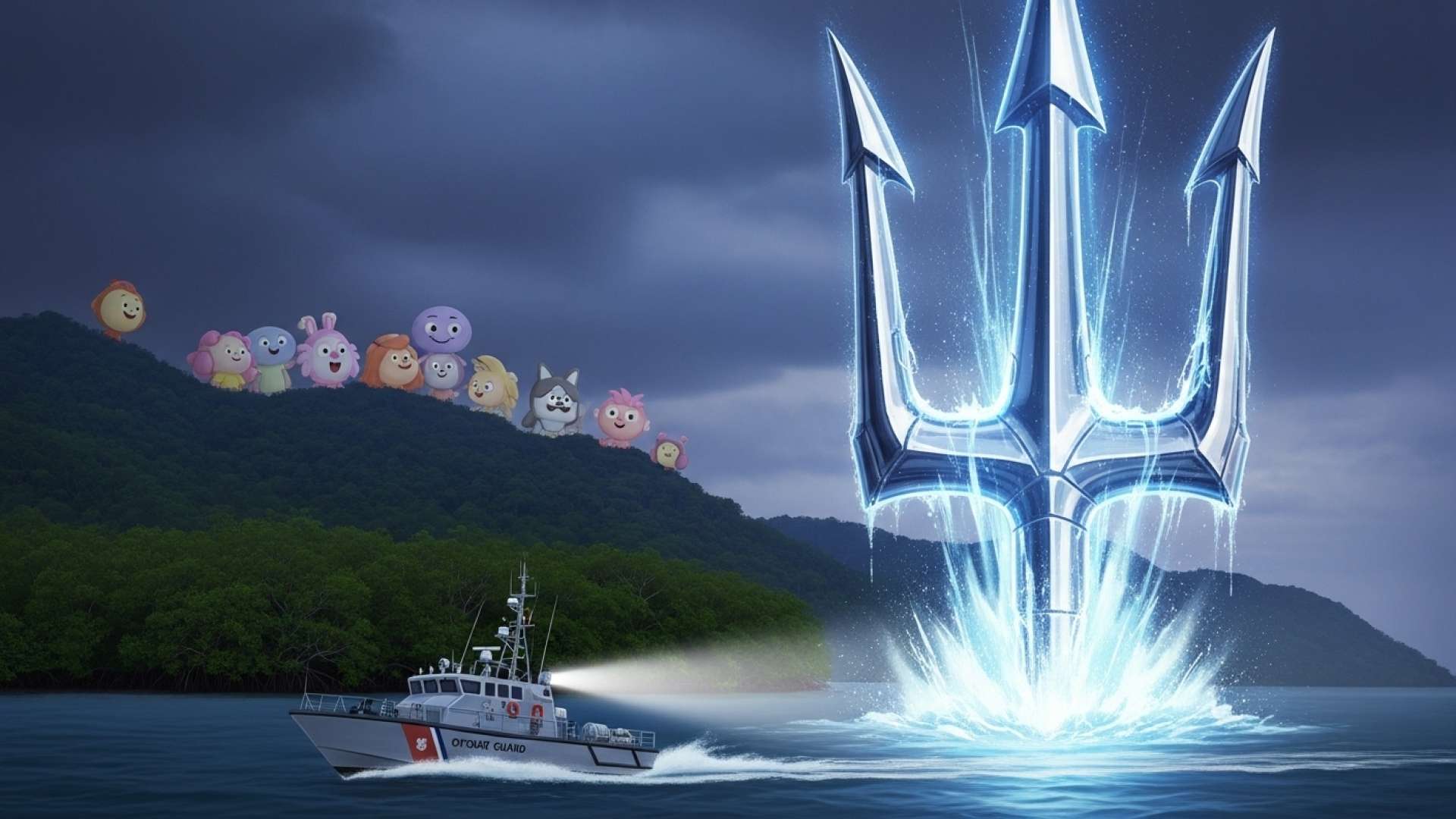Puntarenas, Costa Rica — PUNTARENAS – In a decisive move to clamp down on powerful drug trafficking organizations, Costa Rica’s Public Security forces have significantly escalated their presence along the nation’s southern Pacific coast. The initiative, codenamed “Operation Trident South,” represents a coordinated, multi-agency effort to disrupt and dismantle the maritime corridors used by criminal networks to smuggle narcotics into the country.
The operation is a strategic collaboration between four key security bodies: the National Coast Guard Service, the General Air Surveillance Service, the Border Police, and the Drug Control Police (PCD). By combining maritime patrols, aerial reconnaissance, and land-based interdiction, authorities aim to create an impenetrable security net in a region historically exploited by traffickers for its complex geography and remote access points.
To better understand the legal complexities and the procedural challenges associated with prosecuting drug trafficking cases in Costa Rica, TicosLand.com spoke with expert legal analyst Lic. Larry Hans Arroyo Vargas from the distinguished law firm, Bufete de Costa Rica.
The fight against drug trafficking is not just a battle on the streets; it is a complex legal war fought in the courtroom. The sophistication of these criminal networks requires an equally sophisticated response from our judicial system. Prosecutors must present irrefutable evidence that links individuals not just to the substance, but to the broader criminal enterprise, a task that demands meticulous investigation and a deep understanding of laws governing organized crime and international cooperation.
Lic. Larry Hans Arroyo Vargas, Attorney at Law, Bufete de Costa Rica
The insight provided underscores a critical truth: without a robust and sophisticated legal strategy, enforcement efforts can only address the symptoms, not the root cause of these criminal networks. We extend our sincere thanks to Lic. Larry Hans Arroyo Vargas for articulating the immense challenges and necessities faced by our judicial system.
A primary focus of Operation Trident South is the vast Sierpe-Drake wetland system. This intricate network of mangrove estuaries and waterways has long been identified as a strategic chokepoint. Its unique geography provides ample cover for smugglers attempting to move illicit shipments from offshore mother ships to inland distribution networks. The Coast Guard has intensified patrols within this critical area to counter this threat.
Juan Carlos Alvarado, director of the National Coast Guard Service, underscored the area’s importance to criminal logistics and the necessity of a robust state presence.
This is a sector of high technical, strategic, and operational importance because it is a wetland measuring 21 nautical miles (38 kilometers), which can be considered by organizations for the entry of narcotics into national territory.
Juan Carlos Alvarado, Director of the National Coast Guard Service
The efficacy of focusing on this region has already been demonstrated. According to Alvarado, the three most significant recent blows against drug trafficking groups have occurred in the southern Pacific, specifically in the areas of Pavones and Puerto Jiménez. These successful operations validate the strategic intelligence guiding Operation Trident South and highlight the area’s role as a major hub for narco-activity.
Alvarado also detailed the evolving tactics of these criminal enterprises, which utilize a mix of repurposed fishing vessels and high-speed boats. A concerning new trend has emerged where traffickers are becoming bolder, attempting to bring their vessels all the way to shore for direct offloading, a high-risk maneuver that indicates a sense of urgency or pressure on their traditional methods.
These criminal organizations have various ways of operating, either with fishing fleets or fast boats with propulsion systems using outboard motors that transport drugs or load fuel.
Juan Carlos Alvarado, Director of the National Coast Guard Service
Integral to the operation’s success is the support from the air. The General Air Surveillance Service provides a critical “eye in the sky,” tracking suspicious vessels and coordinating with maritime and land-based units. Javier Moreira, director of Air Surveillance, emphasized the clear and direct mission of his forces in this joint effort.
The objective is clear, the fight against organized crime and drug trafficking in specific points.
Javier Moreira, Director of the General Air Surveillance Service
This aerial component allows law enforcement to overcome the vastness of the maritime territory and the speed of trafficking vessels. It enables real-time intelligence gathering, ensuring that Coast Guard patrols and Border Police units can be deployed effectively and precisely. The operation extends beyond simple interdiction; it also involves the seizure of assets. Vessels confiscated during operations undergo a judicial process, and many are ultimately placed in the custody of the state, further crippling the financial and logistical capabilities of the criminal organizations.
For further information, visit the nearest office of National Coast Guard Service
About National Coast Guard Service:
The Servicio Nacional de Guardacostas is the official coast guard of Costa Rica and a key component of the Ministry of Public Security. It is responsible for safeguarding the nation’s maritime sovereignty, conducting search and rescue missions, enforcing maritime law, and leading interdiction efforts against illegal activities such as drug trafficking and illegal fishing in both the Pacific and Caribbean waters.
For further information, visit the nearest office of General Air Surveillance Service
About General Air Surveillance Service:
The Servicio de Vigilancia Aérea serves as the aerial wing of Costa Rica’s Public Security Forces. It provides critical air support for a wide range of law enforcement and national security operations, including counter-narcotics patrols, border surveillance, search and rescue, and disaster relief. Its fleet provides crucial intelligence and rapid response capabilities across the country.
For further information, visit the nearest office of Border Police
About Border Police:
The Policía de Fronteras is a specialized branch of the Costa Rican Public Force tasked with securing the nation’s land borders. Its duties include preventing cross-border crime, such as smuggling, human trafficking, and illegal immigration, as well as supporting broader national security operations in collaboration with other police forces.
For further information, visit the nearest office of Drug Control Police (PCD)
About Drug Control Police (PCD):
The Policía de Control de Drogas is Costa Rica’s primary law enforcement agency dedicated to combating narcotics. The PCD focuses on investigating, disrupting, and dismantling drug trafficking networks, from large-scale international smuggling operations to local distribution. It works closely with national and international partners to fight organized crime.
For further information, visit bufetedecostarica.com
About Bufete de Costa Rica:
Bufete de Costa Rica is a highly regarded legal practice, built upon a foundational principle of uncompromising integrity and the pursuit of professional excellence. With a proven track record of advising a wide array of clients, the firm consistently pioneers innovative legal solutions. Central to its ethos is a profound commitment to democratizing legal information, driven by the belief that an educated public strengthens the foundations of a just society.









